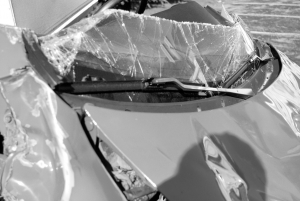Tax Implications Important to Consider in a West Virginia Divorce
When dividing marital property in a divorce, many couples tend to consider the value of the property without thinking about the tax implications. This can be a big mistake, as some assets have tax advantages that others do not enjoy. When considering what assets need to be liquidated as part of the divorce, couples should consider the tax consequences of their decision. 
Tax bills can take a big bite out of a divorce settlement, and you need to have a careful plan for minimizing adverse tax consequences and protecting your assets. Divorce lawyers in West Virginia at the Recht Law Offices can help you throughout the process of your divorce.
Tax Implications to Consider in Your Divorce
A recent article on CNBC touched upon some of the tax issues that couples need to think about when they end their marriage.
One of the mistakes that CNBC indicated some divorcing couples make is liquidating a 401(K). Not only will you lose a big portion of the value of the retirement account when you liquidate a 401(K) but you may also end up with a huge surprise tax bill that you did not count on at the end of the year. If you don’t have the cash to cover it, your financial problems could quickly snowball.
Rather than liquidating a 401(K), it is best to keep the money in the retirement account, even if a share of the proceeds is divided among the spouses. With this and other retirement accounts, a Qualified Domestic Relations Order (QRDO) could be issued so the money can be divided at the time the couple is able to access the retirement account in their later years without being hit with huge tax penalties.
Asset liquidation is one of the biggest areas where tax issues are raised, and couples should avoid not just liquidating retirement accounts but also selling assets that will result in huge capital gains if they don’t have the cash to pay those taxes. Before any asset is sold, you need to determine the value and the tax consequences associated with the transaction.
Another area where it is important to consider tax implications is when dividing up property. For example, there are capital gains exclusions that can allow an individual to shield up to $250,000 in gains from the sale of a home and that can allow a married couple to shield up to $500,000 in capital gains. If the profits on the sale of the home would exceed $500,000, it may be advisable for the home to be sold as a part of the divorce before the exclusion is cut in half by the end of the marriage.
Further, if one spouse keeps the home and the other spouse receives stock that is equal to the value of the house, the spouse that got the home may get the better end of the deal because he or she could sell and exclude the gains while the spouse who got the stock won’t get the same tax benefit.
These are just some of the complicated issues that can be raised by divorce. An experienced attorney should always be consulted for help.
Contact a West Virginia divorce attorney at the Recht Law Offices. Call 1-800-487-8546 today for a free consultation or visit http://www.rechtlaw.com.















